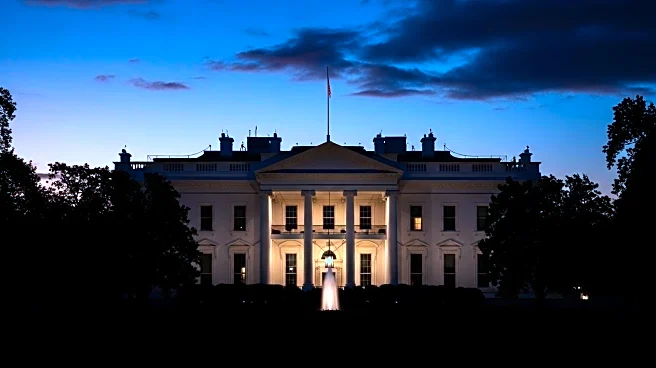What's Happening?
A senior White House official inadvertently disclosed plans to deploy the elite 82nd Airborne Division to Portland, Oregon. The leak occurred when Anthony Salisbury, a deputy to White House policy adviser Stephen Miller, was seen using Signal in a public setting to discuss the deployment. The Minnesota Star Tribune reported that Salisbury was communicating with Patrick Weaver, a senior adviser to Defense Secretary Pete Hegseth, and other federal officials. Weaver indicated that Hegseth preferred to send the National Guard due to potential backlash from using the army, but sought explicit authorization from President Trump. The 82nd Airborne Division is known for its rapid response capabilities and has been involved in major conflicts such as Vietnam and Afghanistan.
Why It's Important?
The leak highlights ongoing tensions between federal and local authorities, particularly in cities like Portland that have been criticized by President Trump. Deploying the 82nd Airborne Division could escalate tensions and lead to significant public and political backlash. The decision to use military forces in domestic situations is controversial and could impact public perception of the administration's handling of civil unrest. The leak also underscores issues of information security within the Trump administration, potentially affecting trust and operational integrity.
What's Next?
Defense Secretary Hegseth has announced the immediate deployment of 200 National Guard members, although reports suggest they have not yet been deployed. The situation remains fluid, with potential for further developments depending on President Trump's directives. Stakeholders, including local government officials and civil rights groups, may respond with legal challenges or public protests against military involvement. The administration's next steps will likely be scrutinized for adherence to legal and ethical standards.
Beyond the Headlines
The leak raises concerns about the security of communications within the Trump administration, particularly regarding sensitive military operations. It also reflects broader issues of transparency and accountability in government decision-making. The use of military forces in domestic settings poses ethical questions about the balance between maintaining order and respecting civil liberties. Long-term implications could include changes in policy regarding military deployment in civilian areas.









